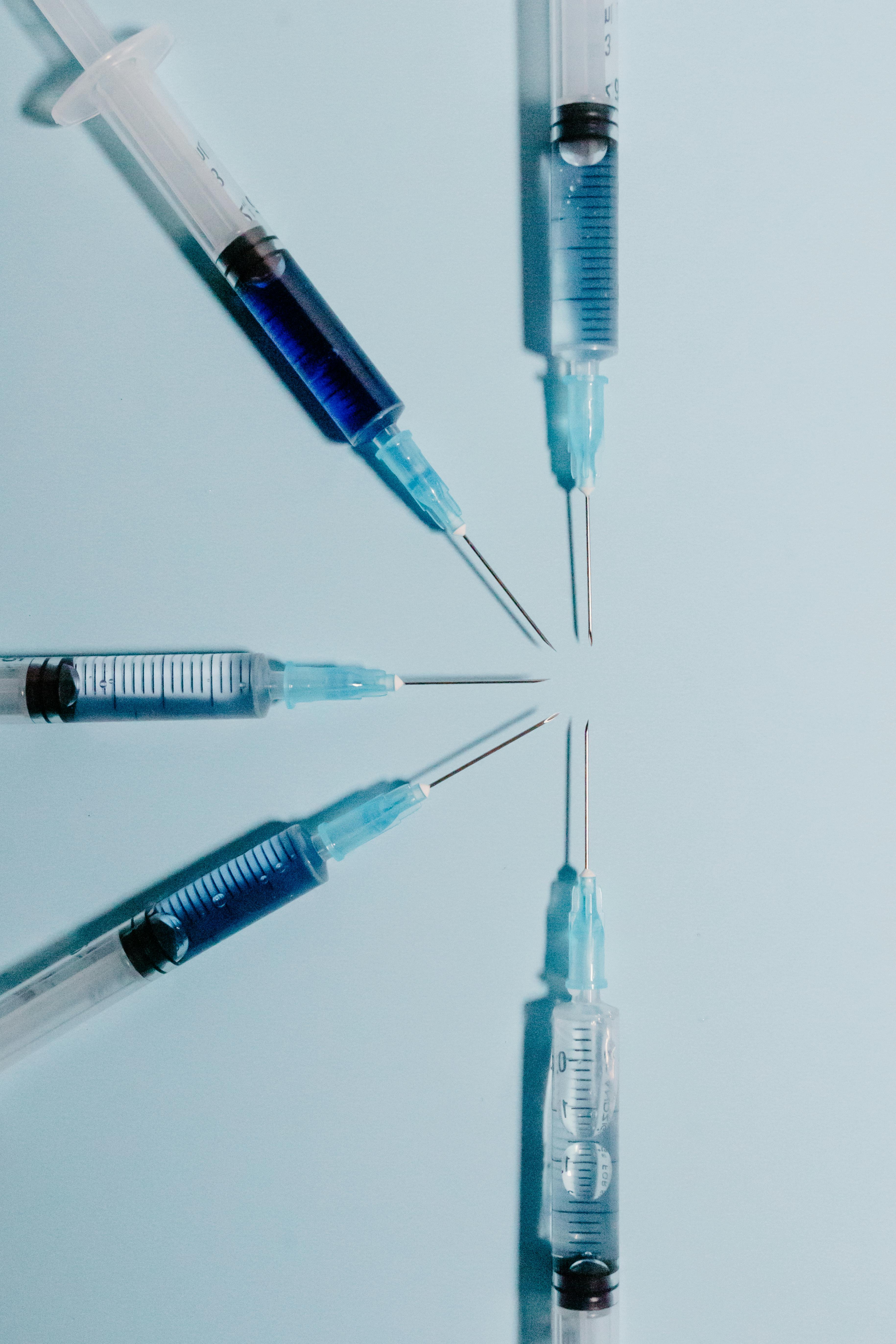The Top 10 Foods for Glowing Skin
Top 10 science-backed foods to support healthy, glowing skin from the inside out — plus why nutrition may matter more than your skincare routine.

A primary care membership for patients who want more. Primary Care. Nutrition. Wellness. All under one roof.
We’re all for a solid skincare routine. But if we’re being honest, it’s easy to get swept up in the billion-dollar beauty industry — adding new serums, spot treatments, and supplements to cart while ignoring what might be the most important skin strategy of all: what’s on your plate.
Yes, skincare is more than skin deep. Nutrition, sleep, stress, and gut health all play an essential role in how our skin functions and how it appears. While there’s no such thing as a magic food that will single-handedly clear your skin, certain foods can support your skin's natural ability to repair, hydrate, and glow from within.
Here are our top 10 skin-supportive foods — and the science behind why they work:
1. In-Season Produce
Nature knows what we need, and when.
- Summer produce like tomatoes, watermelon, and bell peppers is rich in lycopene and beta-carotene, antioxidants that help reduce UV-induced skin damage and oxidative stress — especially relevant when we’re getting more sun exposure.
- Winter citrus is loaded with vitamin C, essential for collagen synthesis and immune defense.
- Spring greens (think arugula, dandelion, watercress) support detox pathways through chlorophyll, folate, and minerals.
Fall’s root vegetables, like beets and squash, are grounding and rich in beta-carotene and fiber, feeding both your skin and your gut.
Eating seasonally also ensures food is harvested at peak ripeness which is when it’s most nutrient-dense.
The research: Seasonal fruits and vegetables contain more antioxidants when grown and harvested naturally, which may support skin aging and oxidative resilience.
2. Raw Carrots
Carrots are a skin superfood, especially when eaten raw.
They’re high in beta-carotene, a precursor your body can convert into vitamin A. This nutrient supports cell turnover, wound healing, and helps maintain the skin’s protective barrier.
Bonus: Raw carrots contain unique fibers that support gut health and hormone balance. Research suggests raw carrot fiber may bind excess estrogen and endotoxins, potentially reducing inflammatory skin symptoms.
The research: Beta-carotene has photoprotective effects and may improve skin appearance and elasticity. Fiber-rich diets also support microbial balance, which is key for inflammatory skin conditions.
3. Bone Broth
Bone broth is foundational when it comes to skin support. It contains collagen, gelatin, and key amino acids like glycine, proline, and hydroxyproline, which support skin elasticity, hydration, and repair. Bone broth is also a source of minerals like magnesium and calcium, which are essential for skin barrier function.
Regularly consuming broth made from pasture-raised bones (especially those with cartilage and skin) can strengthen the skin’s structural integrity and help minimize the appearance of fine lines over time.
The research: Daily collagen supplementation improves skin hydration, elasticity, and dermal collagen density.
4. Raw Honey
Raw honey is nature’s multitasker.
Internally, it supports gut health, offers trace minerals, and reduces systemic inflammation. Topically, it hydrates, gently exfoliates, and provides antibacterial and wound-healing properties which is especially potent in Manuka varieties.
The research: Manuka honey is clinically effective in wound healing, reducing bacterial load, and improving moisture retention in skin.
5. Extra Virgin Olive Oil, Coconut Oil & Black Seed Oil
Your skin needs fat to stay supple, hydrated, and resilient.
- Olive oil is rich in monounsaturated fats, vitamin E, and polyphenols that fight oxidative stress and support skin elasticity.
- Coconut oil offers lauric acid, which has antimicrobial properties and supports a healthy skin barrier.
- Black seed oil contains thymoquinone, a potent anti-inflammatory that may help with eczema, acne, and skin texture.
The research: Diets high in monounsaturated fats and polyphenols are associated with fewer signs of photoaging and improved skin integrity.
6. Pasture-Raised Meat
High-quality animal products (especially from pasture-raised sources) offer bioavailable nutrients that directly support skin health.
They contain preformed vitamin A (retinol), which doesn’t require conversion like beta-carotene and is critical for skin cell turnover, oil regulation, and barrier maintenance. These meats are also richer in omega-3 fatty acids compared to conventionally raised meat, helping reduce inflammation and support the lipid layer of the skin.
Pasture-raised cuts with connective tissue or skin (like chicken thighs, oxtail, or bone-in beef) also supply collagen-building amino acids and important micronutrients like zinc, iron, and vitamin B12 — all essential for repair and regeneration.
The research: Preformed vitamin A supports epidermal differentiation and healing. Omega-3s and zinc from animal foods improve inflammatory skin conditions and overall skin structure.
7. Wild Sardines
Don’t knock them before you try them.
Sardines are rich in omega-3 fatty acids, vitamin D, selenium, and zinc, all of which support skin barrier function, reduce inflammation, and promote healing. They also pack a serious antioxidant punch.
The research: Omega-3s may reduce acne severity, support barrier function, and improve skin hydration.
8. Raw Cacao
Yes, chocolate can be good for your skin — if you’re eating the right kind.
Raw cacao is loaded with flavanols that increase blood flow to the skin, enhance hydration, and protect against UV-induced damage. It’s also rich in magnesium, which supports stress regulation and by extension, skin balance.
The research: Flavanol-rich cocoa improves skin texture, hydration, and resilience to environmental stressors.
9. Herbal Teas
Herbs are nature’s quiet healers.
- Spearmint balances hormones, particularly androgens, which may help reduce hormonal acne.
- Chamomile soothes both the skin and the nervous system.
- Hibiscus is rich in anthocyanins and vitamin C for skin brightening.
- Nettle and dandelion support liver detoxification and mineral replenishment.
The research: Herbal teas offer anti-inflammatory, antioxidant, and adaptogenic benefits that may positively impact skin health via the gut-skin axis.
10. Eggs
Eggs are one of the most nutrient-dense whole foods available.
They contain biotin, vitamin A, vitamin D, choline, and amino acids which are all essential for collagen production, cell repair, hydration, and barrier integrity.
The research: Biotin and choline are both critical for skin repair and barrier function, while protein is necessary for cellular regeneration.
Final Thoughts
Glowing, resilient skin starts from within. While topical products have their place, what you eat, how you live, and how you care for your whole system often matter more.
At The Lanby, we believe in stripping things down to the basics. Personalized, data-informed care that blends conventional medicine with functional insight. When you support your skin through nutrient-dense food, daily movement, stress management, and proper rest you’re building real, lasting health from the inside out.
Sources:
- Seasonal variation of antioxidant content in fruits and vegetables. J Food Comp Anal
- Beta-carotene and skin health. Am J Clin Nutr
- Gut microbiota and skin inflammation. Exp Dermatol
- Manuka honey in wound healing. Wounds
- Olive oil polyphenols and aging. Clin Interv Aging
- Collagen peptide supplementation and skin aging. J Cosmet Dermatol
- Omega-3s in dermatology. Dermatol Clin
- Cocoa flavanols and skin photoprotection. J Nutr Biochem
- Herbal medicine for dermatologic disorders. J Altern Complement Med
- Egg-derived nutrients and skin health. Nutrients
- Retinoids in skin physiology. Dermato-Endocrinology
- Omega-3 fatty acids in skin inflammatory diseases. Int J Mol Sci

If you're curious to learn more about The Lanby, book a free consult call and we'll chat about how The Lanby can be your personalized long term health and wellness partner.

Kendall is a graduate of the University of Mississippi, with a B.A. in Integrated Marketing Communications and a minor in Business Administration. She received her certificate of Nutrition Science from the Friedman School of Nutrition at Tufts University.

Chloe holds a bioengineering degree from the University of Pennsylvania. As a breast cancer survivor, her insights shape The Lanby's patient-centric approach. Leveraging her healthcare strategy background, Chloe pioneers concierge medicine, bridging gaps in primary care.

Tandice was recognized with the Health Law Award and named a Ruth Bader Ginsburg Scholar at Columbia Law School. Tandice's editorial role is enriched by her insights into patient autonomy and gene modification legalities. Passionate about bioethics, she is committed to crafting patient-centric healthcare solutions.





